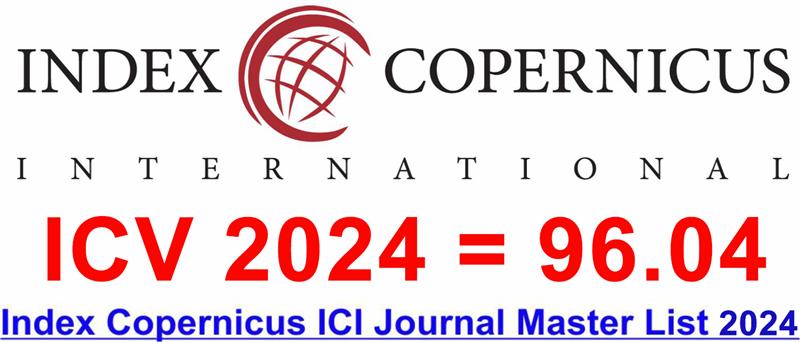The Role of the Interpersonal Skills of the School Principals in Optimizing Positive School Climate: A Concept Paper
DOI:
https://doi.org/10.60072/ijeissah.2023.v1i02.003Abstract
Fostering a positive school climate is an essential aspect of school improvement. Research has shown that the interpersonal skills of school principals play a crucial role in optimizing school climate. This concept paper aims to develop a conceptual framework that utilizes the current literature on the role of the principal's interpersonal skills in optimizing positive school climate. The literature review focuses on specific interpersonal skills such as communication, trustworthiness, empathy, and problem-solving, which are essential for promoting a positive school climate. The research methodology used in this paper was a comprehensive literature review to develop a conceptual framework on the role of the interpersonal skills of school principals in optimizing a positive school climate. The paper also examined the perspectives of teachers and how their perceptions of the principal's interpersonal skills impact the school climate. Additionally, the paper integrated Bronfenbrenner's ecological systems theory to provide a more holistic view of the school climate and identify how different systems within and outside the school can be influenced to optimize it. This paper contributes to the literature by providing a more in-depth understanding of the specific interpersonal skills that are required for school climate optimization and their influence on the overall learning and work environment.
Keywords:
Principal Interpersonal Skills, School Climate Optimization, Soft SkillsReferences
Alanya Beltran, J. E., Charernnit, K., Mathur, A., Kankaew, K., Sudhakar, P. J., Singh, S., ... & Singh, N. D. (2021). Interplay of shared leadership practices of principals, teachers’ soft skills and learners’ competitiveness in covid 19 era: implications to economics of educational leadership.
Aldridge, J. M., McChesney, K., & Afari, E. (2020). Associations between school climate and student life satisfaction: resilience and bullying as mediating factors. Learning Environments Research, 23, 129-150. https://doi.org/10.1007/s10984-019-09296-9
Aldrup, K., Carstensen, B., & Klusmann, U. (2022). Is Empathy the Key to Effective Teaching? A Systematic Review of Its Association with Teacher-Student Interactions and Student Outcomes. Educational Psychology Review, 34(3), 1177-1216. https://doi.org/10.1007/s10648-021-09649-y
Alford, B. (2019). LEADERSHIP PRACTICES FOR EQUITY AND EXCELLENCE. Educational Leadership, Culture, and Success in High-Need Schools, 85.
Baafi, D. (2021). Educational Leaders’ Views About School Culture, Climate, Leadership, And Success: A Comparative Study Of New Zealand, Finland, And Ghana (Doctoral dissertation, Open Access Te Herenga Waka-Victoria University of Wellington). https://doi.org/10.26686/wgtn.14357240.v3
Baptiste, M. (2019). No Teacher Left Behind: The Impact of Principal Leadership Styles on Teacher Job Satisfaction and Student Success. Journal of International education and leadership, 9(1), n1.
Bennis, W., & Nanus, B. (1985). Leaders: The strategies for taking charge. New York: Harper & Row.
Blitz, L. V., Yull, D., & Clauhs, M. (2020). Bringing sanctuary to school: Assessing school climate as a foundation for culturally responsive trauma-informed approaches for urban schools. Urban Education, 55(1), 95-124. DOI: 10.1177/0042085916651323
Blase, J., & Blase, J. (2007). School principal mistreatment of teachers: Teachers' perspectives on emotional abuse. Journal of Emotional Abuse, 4(3-4), 151-175. https://doi.org/10.1300/J135v04n03_10
Bolner, D. J. (2020). A Comparison of Problem-Solving Confidence and Problem-Solving Styles in Traditional and Technical High Schools (Doctoral dissertation, Western Connecticut State University).
Brezicha, K. F., & Fuller, E. J. (2019). Building teachers’ trust in principals: Exploring the effects of the match between teacher and principal race/ethnicity and gender and feelings of trust. Journal of School Leadership, 29(1), 25-53. https://doi.org/10.1177/1052684618825087
Bronfenbrenner, U. (1979). The ecology of human development: Experiments by nature and design. Harvard university press. DOI: https://doi.org/10.1126/science.207.4431.634
Bush, T. (2019). Distinguishing between educational leadership and management: Compatible or incompatible constructs?. Educational Management Administration & Leadership, 47(4), 501-503. https://doi.org/10.1177/1741143219839262
Civitillo, S., Göbel, K., Preusche, Z., & Jugert, P. (2021). Disentangling the effects of perceived personal and group ethnic discrimination among secondary school students: The protective role of teacher–student relationship quality and school climate. New Directions for Child and Adolescent Development, 2021(177), 77-99. https://doi.org/10.1002/cad.20415
Cohen, J., Pickeral, T., & McCloskey, M. (2009). Assessing school climate. The Education Digest, 74(8), 45.
Daily, S. M., Mann, M. J., Kristjansson, A. L., Smith, M. L., & Zullig, K. J. (2019). School climate and academic achievement in middle and high school students. Journal of School Health, 89(3), 173-180. https://doi.org/10.1111/josh.12726
Day, C., Sammons, P., & Gorgen, K. (2020). Successful School Leadership. Education development trust. https://files.eric.ed.gov/fulltext/ED614324.pdf
Dolebo, M. M. (2021). EFFECTIVENESS OF SCHOOL LEADERS IN MANAGING THEIR SCHOOLS IN KAMBATA-TEMBARO ZONE, ETHIOPIA. Ethiopian Journal of Education Studies, 1(1), 26-49. https://journals.hu.edu.et/hu-journals/index.php/ejes/article/view/262
Dumulescu, D., & Muţiu, A. I. (2021). Academic leadership in the time of COVID-19—Experiences and perspectives. Frontiers in Psychology, 12, 648344. https://doi.org/10.3389/fpsyg.2021.648344
Dutta, V., & Sahney, S. (2022). Relation of principal instructional leadership, school climate, teacher job performance and student achievement. Journal of Educational Administration,60(2), 148-166. https://doi.org/10.1108/JEA-01-2021-0010
Evangelista, E. D. G. (2022). Exploration of the Influence of Principals' Soft Skills on Student Achievement (Doctoral dissertation, City University of Seattle). https://www.proquest.com/openview/e3b362562cb534685a4ee4b38ae6a3b2/1?pq-origsite=gscholar&cbl=18750&diss=y
Gumus, E. (2019). Investigation of mentorship process and programs for professional development of school principals in the USA: The case of Georgia. International Journal of Educational Leadership and Management, 2-41. DOI: https://doi.org/10.17583/ijelm.2019.3718
Hallam, P. R., Boren, D. M., Hite, J. M., Hite, S. J., & Mugimu, C. B. (2013). Headteacher visibility and teacher perceptions of headteacher trustworthiness: A comparison of the Ugandan context to existing theory. International Journal of Educational Development, 33(5), 510-520. https://doi.org/10.1016/j.ijedudev.2012.08.003
Hartinah, S., Suharso, P., Umam, R., Syazali, M., Lestari, B., Roslina, R., & Jermsittiparsert, K. (2020). Retracted: Teacher’s performance management: The role of principal’s leadership, work environment and motivation in Tegal City, Indonesia. Management Science Letters, 10(1), 235-246. DOI: 10.5267/j.msl.2019.7.038
Haslip, M. J., Allen-Handy, A., & Donaldson, L. (2019). How do children and teachers demonstrate love, kindness and forgiveness? Findings from an early childhood strength-spotting intervention. Early Childhood Education Journal, 47, 531-547. https://doi.org/10.1007/s10643-019-00951-7
Hill, R. (2021). Correlation Between Middle School Principals’ Soft Skills and School Climate (Doctoral dissertation, Grand Canyon University).
Hitt, D. H., & Player, D. W. (2019). Identifying and predicting effective leader practices: Examining principal experience and prior roles. Leadership and Policy in Schools, 18(1), 97-116. https://doi.org/10.1080/15700763.2017.1384502
Jefferies, D., Glew, P., Karhani, Z., McNally, S., & Ramjan, L. M. (2021). The educational benefits of drama in nursing education: A critical literature review. Nurse Education Today, 98, 104669. https://doi.org/10.1016/j.nedt.2020.104669
Justice, M. (2018). The relationship between administrator interpersonal skills and school climate, student learning, and teacher retention. Gardner-Webb University. https://www.proquest.com/openview/1a9f6c9abecf466c5593cadbde523d51/1?pq-origsite=gscholar&cbl=18750
Khattak, H. R., Yaqoob, S., & Basri, R. (2003). Communication skills module. Learning Innovation Division National, 11.
Leithwood, K. (2019). Characteristics of effective leadership networks: A replication and extension. School Leadership & Management, 39(2), 175-197 DOI: https://doi.org/10.1080/13632434.2018.1470503
Leithwood, K., & Jantzi, D. (2000). The effects of transformational leadership on organizational conditions and student engagement with school. Journal of educational administration,38(2),112-129. https://doi.org/10.1108/09578230010320064
Lippard, C. N., La Paro, K. M., Rouse, H. L., & Crosby, D. A. (2018, February). A closer look at teacher–child relationships and classroom emotional context in preschool. In Child & Youth Care Forum (Vol. 47, No. 1, pp. 1-21). Springer US. https://doi.org/10.1007/s10566-017-9414-1
Majluf, N., & Abarca, N. (2021). Sensible Leadership: Human Centered, Insightful and Prudent. Routledge.
Malone, M. E. (2013). The relationship of the principal's soft skills to school climate. The University of Texas at San Antonio. https://www.proquest.com/openview/6b5ab085f7d306924db7b565df58469a/1?pq-origsite=gscholar&cbl=18750
Marasan, R. B. (2021). A Principal’s Leadership Excellence Though Disposition of Attributes. Turkish Journal of Computer and Mathematics Education (TURCOMAT), 12(11), 5360-5371.
Mombourquette, C. (2017). The Role of Vision in Effective School Leadership. International Studies in Educational Administration (Commonwealth Council for Educational Administration & Management (CCEAM)), 45(1). https://cceam.net/wp-content/uploads/2019/01/ISEA_2017_45_1.pdf#page=25
Moore, R. A. (2020). A Qualitative Bounded Case Study on Teacher and Administrator Perceptions of Students’ Adverse Childhood Experiences in Rural, Northwest Missouri Elementary Schools (Doctoral dissertation, University of Missouri-Columbia). https://www.proquest.com/openview/c86a1a8fd9b7bb5581ea1d777fa7e818/1?pq-origsite=gscholar&cbl=18750&diss=y
Nichols, S., & Stahl, G. (2019). Intersectionality in higher education research: A systematic literature review. Higher Education Research & Development, 38(6), 1255-1268.DOI: https://doi.org/10.1080/07294360.2019.1638348
Opper, I. M. (2019). Does helping John help Sue? Evidence of spillovers in education. American Economic Review, 109(3), 1080-1115. DOI: 10.1257/aer.20161226
Palmer, D. J. (2019). A comparative study of high school perceptions of school climate between students, teachers, and parents (Doctoral dissertation, Neumann University). https://www.proquest.com/openview/cbfea8babc8ef943f547761caa67423a/1?pq-origsite=gscholar&cbl=18750&diss=y
Pineda-Báez, C., Bernal-Luque, R., Sandoval-Estupiñan, L. Y., & Quiroga, C. (2019). Challenges facing novice principals: A study in Colombian schools using a socialisation perspective. Issues in Educational Research, 29(1), 205-222. https://search.informit.org/doi/abs/10.3316/INFORMIT.171988029529772
Polega, M., Neto, R. D. C. A., Brilowski, R., & Baker, K. (2019). Principals and teamwork among teachers: an exploratory study. Revista@ mbienteeducação, 12(2), 12-32 DOI https://doi.org/10.26843/v12.n2.2019.708.p12-32
Qian, H., & Walker, A. (2021). Building Emotional Principal–Teacher Relationships in Chinese Schools: Reflecting on Paternalistic Leadership. The Asia-Pacific Education Researcher, 30, 327-338. https://doi.org/10.1007/s40299-021-00563-z
Ryu, Jisu, Jeff Walls, and Karen Seashore Louis. "Caring leadership: The role of principals in producing caring school cultures." Leadership and Policy in Schools 21, no. 3 (2022): 585-602. DOI: https://doi.org/10.1080/15700763.2020.1811877
Salas‐Vallina, A., Alegre, J., & López‐Cabrales, Á. (2021). The challenge of increasing employees' well‐being and performance: How human resource management practices and engaging leadership work together toward reaching this goal. Human Resource Management, 60(3), 333-347. DOI: https://doi.org/10.1002/hrm.22021
Shaturaev, J. (2021). Indigent condition in education and low academic outcomes in public education system of Indonesia and Uzbekistan. Архив научных исследований, 1(1).
Stronge, J. H., & Xu, X. (2021). Qualities of effective principals. ASCD.
Swart, Pottas, L., & Maree, D. (2021). Servant school leadership and organisational climate in South African private schools. Education Research International, 2021, 1-13. DOI: https://doi.org/10.1155/2021/8568889
Tingle, E., Corrales, A., & Peters, M. L. (2019). Leadership development programs: Investing in school principals. Educational Studies, 45(1), 1-16 DOI: https://doi.org/10.1080/03055698.2017.1382332
Trujillo, T., Møller, J., Jensen, R., Kissell, R. E., & Larsen, E. (2021). Images of educational leadership: How principals make sense of democracy and social justice in two distinct policy contexts. Educational Administration Quarterly, 57(4), 536-569. DOI: https://doi.org/10.1177/0013161X20981148
Venus, M., Stam, D., & Van Knippenberg, D. (2019). Visions of change as visions of continuity. Academy of Management Journal, 62(3), 667-690. DOI: https://doi.org/10.5465/amj.2015.1196
Voight, A., & Hanson, T. (2017). How Are Middle School Climate and Academic Performance Related across Schools and over Time? REL 2017-212. Regional Educational Laboratory West. https://files.eric.ed.gov/fulltext/ED572366.pdf
Wilson, D. (2004). The interface of school climate and school connectedness and relationships with aggression and victimization. The Journal of School Health, 74(7), 293. DOI:10.1111/j.1746-1561.2004.tb08286.x
Xhomara, N. (2018). Influence of school leadership style on effective teaching and teacher-student interaction. Pedagogika, 132(4), 42-62. DOI: https://doi.org/10.15823/p.2018.132.3
Yao, C. W., & Tuliao, M. D. (2019). Soft skill development for employability: A case study of stem graduate students at a Vietnamese transnational university. Higher Education, Skills and Work-Based Learning. DOI: https://doi.org/10.1108/HESWBL-03-2018-0027
Yulianti, K. (2019). Transformational leadership and parental Involvement in children's education: A study in elementary schools in Java, Indonesia (Doctoral dissertation, [Sl]:[Sn]). http://hdl.handle.net/2066/208590
Zavelevsky, E., & Lishchinsky, O. S. (2020). An ecological perspective of teacher retention: An emergent model. Teaching and Teacher Education, 88, 102965. DOI: https://doi.org/10.1016/j.tate.2019.102965
























